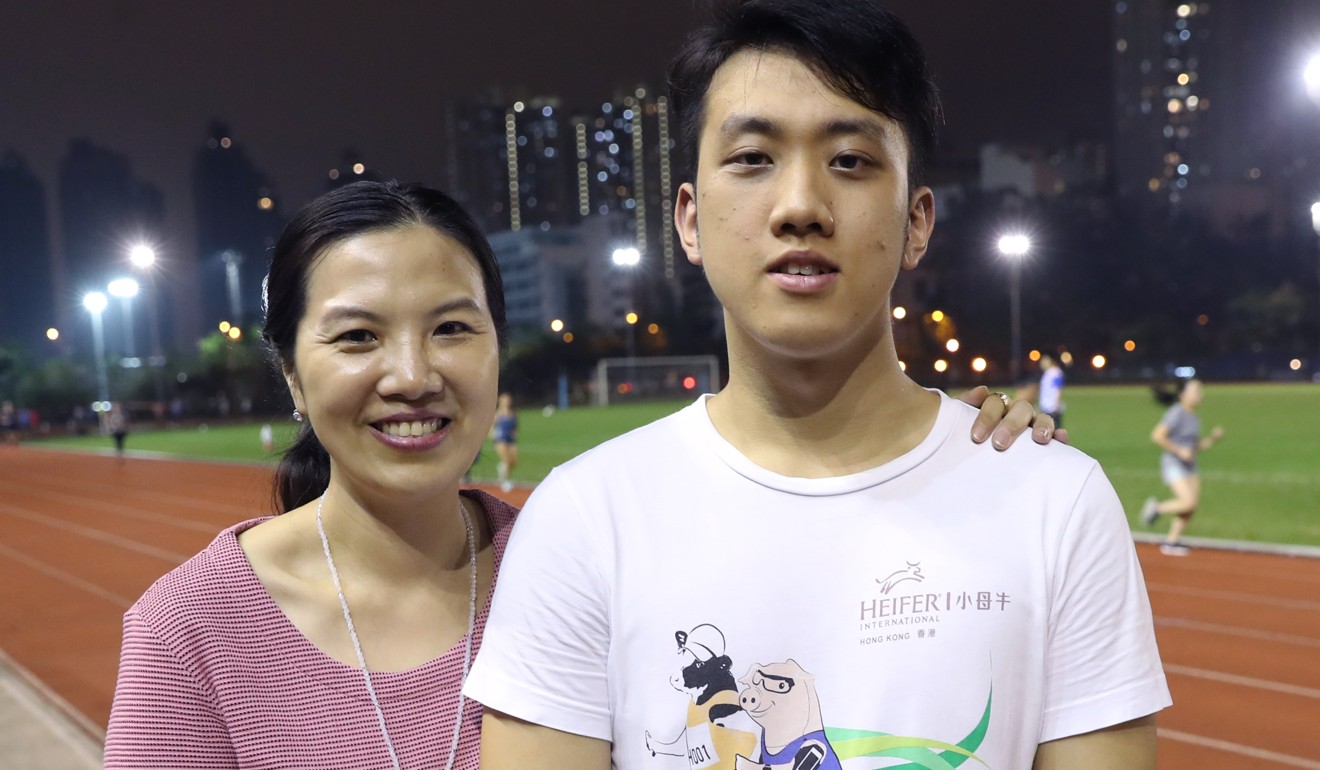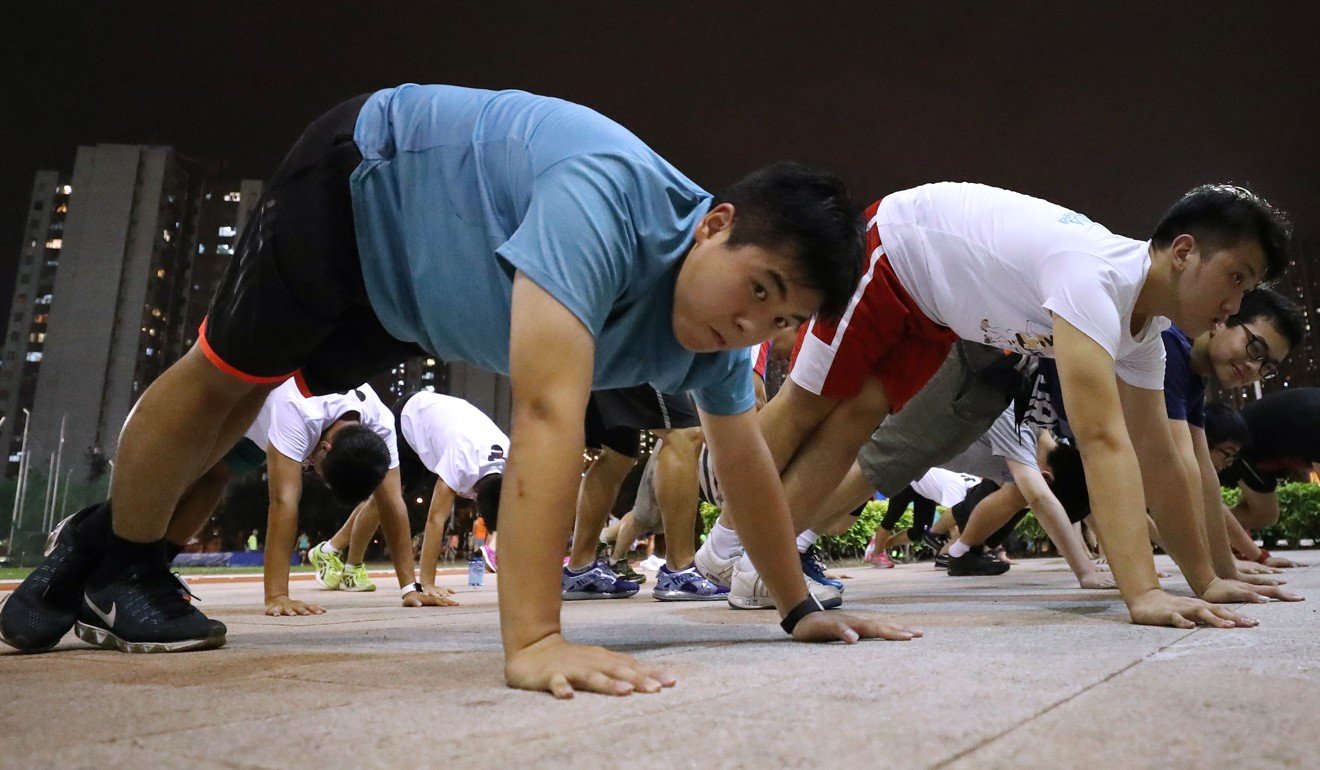
A different track: running practice, and much more, for autistic Hongkongers
Ahead of race at Disneyland, amateur athletes at Kowloon Bay Park find weekly training offers a way past challenges of living with their condition
It’s a breezy October night and Sonia Ng takes her son, Hiroki Ng Ho-kei, to Kowloon Bay Sports Ground, shortly after dinner. It is 7.45pm and the 19-year-old is rushing his mother, making sure he isn’t late for his weekly running training, which starts in 15 minutes.
The boy was diagnosed at a young age with low-functioning autism, which causes a lack in social instincts and a struggle to recognise social cues, resulting in poor social interaction.
But from the looks of Hiroki, his behaviour is a far cry from other autistic patients.
“He has come a long way; he never used to be able to be in the same room as strangers, and has a tough time adapting to new environments,” the 51-year-old single mother says.
As it strikes 8pm, Hiroki runs cheerfully towards the stadium, ready to take to the field. Once out there, the teenager does his routine stretches, listening carefully to instructions and paying attention to his surroundings. Watching from the stands, the mother smiles.

“Very often, people think those with autism are better off staying home, away from the public eye. But it’s surprising to see how much they can achieve once you let them loose, allowing them to do what they love,” she says.
By Hiroki’s side are some of his running friends, who also have autism. During their warm-up, the boys are keeping an eye out for each other.
They are all taking part in a running training programme provided by Tung Wah Group of Hospitals, one of the city’s oldest and largest charities. The group is preparing for a 5km run organised by Hong Kong Disneyland, to be held in November at the theme park.
A total of 20 autistic teenagers have signed up for the run, through the charity.
And the group is learning more than just running techniques from the weekly 90 minutes of training.
“If someone falls because they lose their balance, it’s the right thing to stop what I am doing to help them up, to make sure they are not hurt,” Hiroki says.
“And sometimes when they lag behind during their run, we need to encourage them so then they can get back on track.”
His goal is to finish the 5km run within 30 minutes.
The education psychologist who has been assisting the group, Jac Wei Yat-fai, says they have all come a long way.

He suggests that youngsters with autism can struggle to make friends, and will tend to talk only about their interests, because they lack empathy and can disregard the feelings and thoughts of others.
“That was the case in the very beginning, but now they’ve gained conversational skills, learned to be nice to each other and established friendships with one another,” Wei says.
While it does take longer for them to pick up instructions, all it takes is patience. Kind words go a long way and instead of saying they’re not doing well enough, tell them what they can improve on
“It’s important that we take the training outside because for autistic patients, drilling in the classroom will not get through to them. It is by experiencing, hands-on, that they will grasp the skill to better fit in to society.”
The runners’ coach, Terry Chung Koon-ting, agrees.
“When they’re out on the field, they face other athletes who run on the same track. This is the best way for them to be aware of their behaviour and to learn to act accordingly,” Chung says.
Throughout the months of training, the former athlete from Sports Legacy – a coaching programme linked to the city’s Olympic committee – has figured out a way of working with his charges.
“While it does take longer for them to pick up instructions, all it takes is patience. Kind words go a long way, and instead of saying they’re not doing well enough, tell them what they can improve on,” the coach says.
“Because when they feel encouraged, they’ll put their minds into it and once they do, they will try harder than anyone else.”

